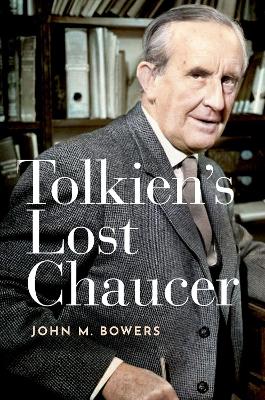
Briana @ Pages Unbound
Written on Dec 20, 2019
The beginning of the book provides a detailed look at the history of the student edition of Chaucer--how it came about, how Tolkien was chosen to work on it, what work he did (or did not) complete for it, what happened to the manuscripts and notes, etc. This is interesting if one wants to know how Tolkien could have done significant work on Chaucer that basically no one knew about or discussed, and it gives a decent portrayal of Tolkien as a scholar--someone who was incredibly thorough, often at the expense of actually finishing things. (There's probably a whole conversation to be had about academia in general here, to be honest, as Tolkien is compared to scholars who were more well-known and prolific but admitted to just kind of moving on if they weren't certain about something in what they were working on, instead of trying to figure it out.)
Personally, I was more interested in the next section of the book, which gives an overview of what Tolkien had drafted for his glosses and notes. This section does require the reader have a working knowledge of Chaucer's "minor" poems, as no summaries are provided, but if you are familiar with the texts Tolkien was commenting on, it's fascinating to see his thoughts. Bowers also notes where Tolkien's opinions or commentary is different from other Chaucer scholars' views--and how much over his page limit for the manuscript his notes extended, as he delved deep into the history of certain words. (The book also emphasizes that Tolkien as a scholar and lecturer was very much a philologist commenting on individual words in individual lines, rather than making general arguments about literature--interesting, as he clearly had a profound understanding of literature and would have been able to analyze it in a lecture.)
Finally, Bowers explores how Tolkien's familiarity with Chaucer might have influenced his own writing, including The Hobbit and The Lord of the Rings. "Tolkien's sources" is, of course, a favorite topic for Tolkien scholars, who have compared Gandalf to Odin, noted that a cup is stolen from a dragon hoard in both Beowulf and The Hobbit, etc., so it's no surprise people would want to know what Tolkien might have "taken" from Chaucer. In many places, Bowers's arguments are convincing, and one can definitely imagine Tolkien reading a scene or seeing a theme in Chaucer and having it in the back of his mind somewhere. At times, however, Bowers seems to be stretching. For instance, there are cases where I wonder if Tolkien was influenced by Chaucer...or just medieval literature in general, which of course is notorious for reworking and recycling various themes, characters, plots, and so forth. There are also times where I would argue Tolkien was probably not "influenced" by much of anything. Can one really argue that the fact Dwarves arrive at Bilbo's house in discrete groups in The Hobbit is somehow related to the fact that the pilgrims in The Canterbury Tales show up in different-sized groups? I think not.
Overall, however, Tolkien's Lost Chaucer is an excellent, clearly well-researched book that will help Tolkien scholars and fans see the author and his work in a new light and remind them that, as a medievalist, he was actually familiar with works written after the Anglo-Saxon period.
